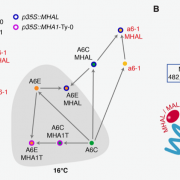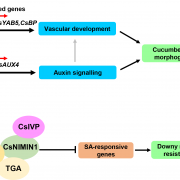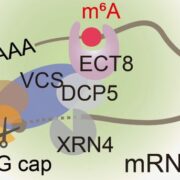Interconnected memories: How heat stress and bacterial infection shape plant resilience
Memory—a mysterious cognitive process that retains information over time and shapes future interpretations and actions—is not exclusive to animals. In plants, a similar phenomenon occurs where past exposure to environmental stressors is “memorized,” enabling plants to respond more effectively to subsequent challenges. This adaptive capability is exemplified by acquired thermotolerance (ATT) and systemic acquired resistance (SAR), two well-documented cases of plant memory. Fascinatingly, Nishad and colleagues uncovered an unexpected crosstalk between these seemingly distinct processes, revealing how they can prime one another. On one side, bacterial infection enhances plant tolerance to heat stress by promoting the sustained upregulation of heat shock proteins, with effects that persist longer than typical ATT responses. Conversely, heat stress influences SAR in an opposite direction, decreasing reactive oxygen species (ROS) production and consequently diminishing plant resistance to bacterial pathogens. Moreover, experiments in mutants deficient in heat shock memory regulators demonstrated that SAR is abolished in the absence of these factors, underscoring the pivotal role of heat shock proteins in mediating immune responses. This study highlights the intricate connections between heat stress signaling and plant immunity, offering exciting possibilities for cross-protection strategies. By understanding these interconnected mechanisms, researchers could develop innovative approaches to enhance crop resilience against combined stressors, improving agricultural sustainability in a changing climate. (Summary by Ching Chan @ntnuchanlab) Plant, Cell & Environment 10.1111/pce.15364











